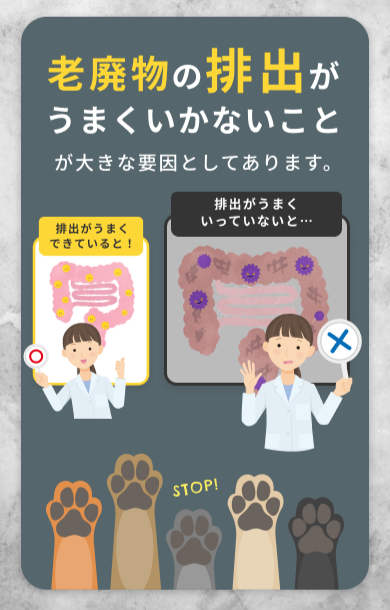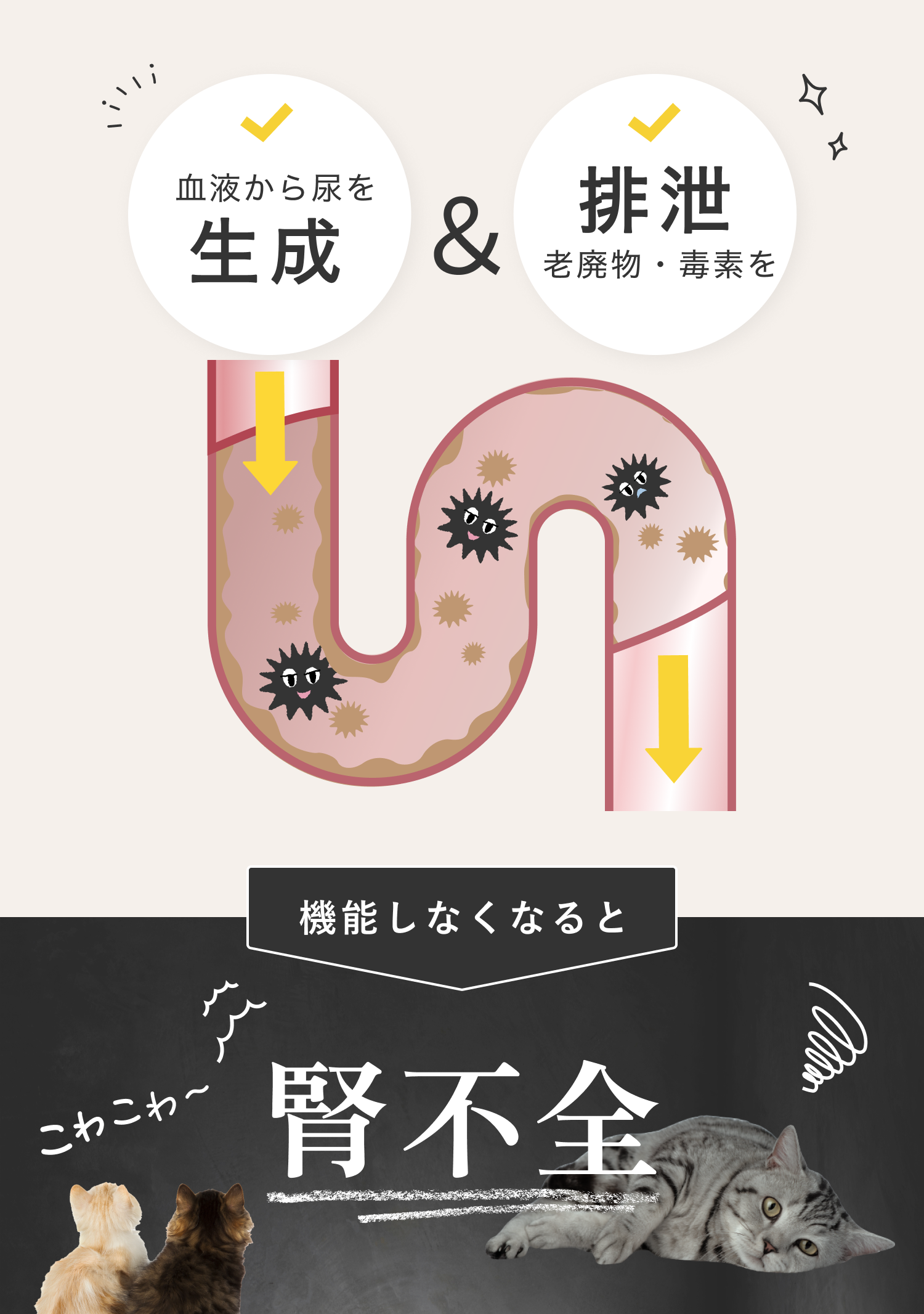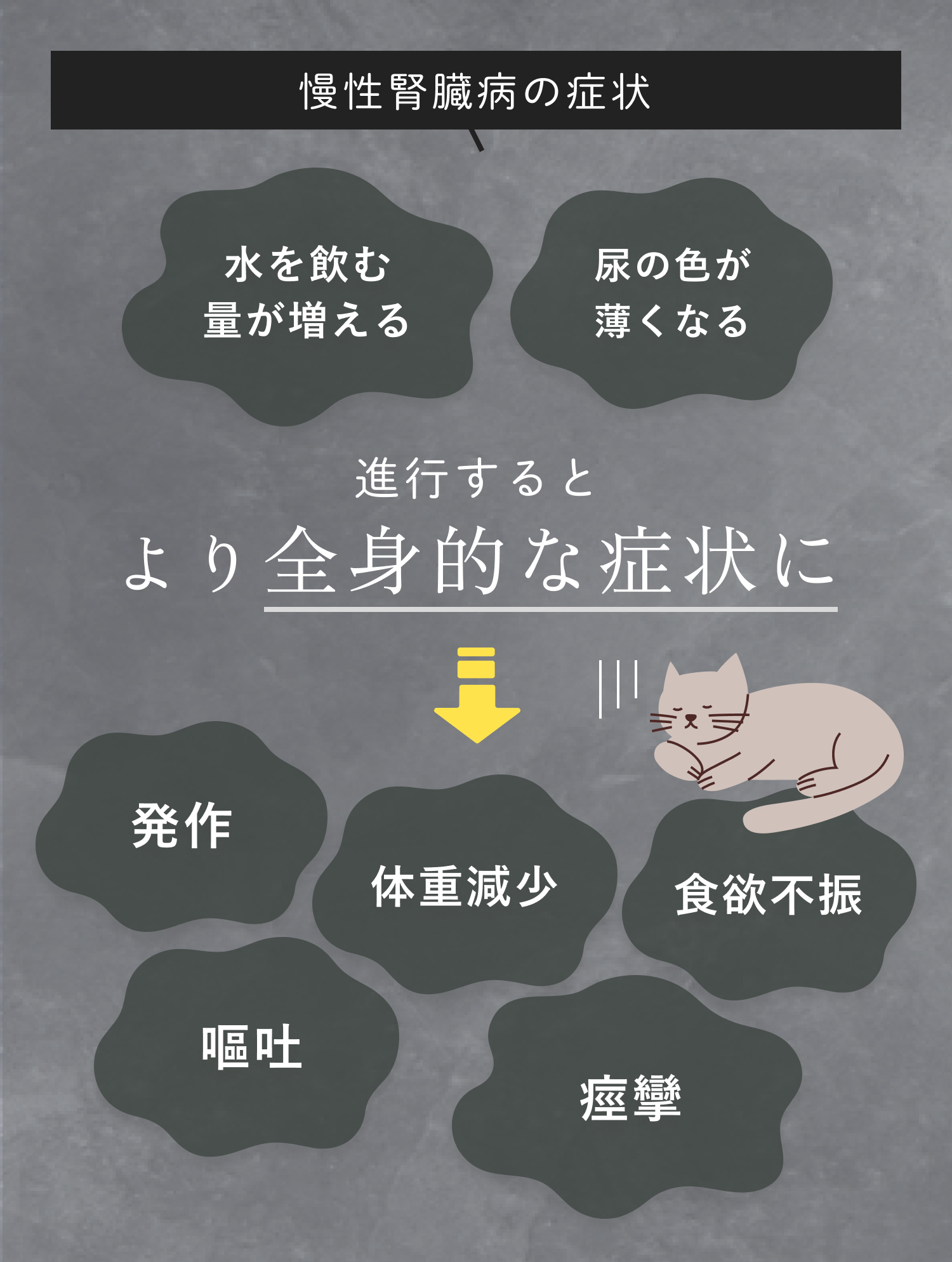What are common diseases in cats?
- Suddenly, but do you know what diseases cats are very susceptible to ?
While cancer is also common, the truth is that kidney disease is very prevalent and accounts for a high number of deaths.
- There are various causes, but a major factor is the inability to properly excrete waste products. Cats are animals that consume little water, so they are inherently predisposed to kidney failure .
Kidney function and chronic kidney disease
- The kidneys are organs that produce urine from blood, excrete waste products and toxins that are no longer needed in the body, and maintain the ion balance in the blood.
- The condition in which the kidneys are damaged and unable to function properly is called "renal failure," and if this continues for a long period of time, it is diagnosed as chronic kidney disease.
- It is said that the kidneys are an organ that is difficult to improve once its condition deteriorates.
- Chronic kidney disease is a common disease in older cats and has a high mortality rate.
- It has also been confirmed that many cats who died from other causes actually had already deteriorated kidneys, so cats and kidney disease have an inseparable relationship.
Early symptoms of chronic kidney disease
- In the early stages, changes related to urine itself can be observed, such as an increase in the amount of water consumed and a lightening of urine color.
- As the condition progresses, systemic symptoms such as loss of appetite, weight loss, vomiting, and seizures may occur.
- Because it's an organ that's difficult to improve once its condition deteriorates, daily prevention and care are extremely important.
How to prevent kidney disease in cats
-
1. Get regular health checkups.
Regular health checkups, including blood and urine tests, can significantly increase the chances of detecting chronic kidney disease before symptoms appear. Chronic kidney disease often progresses to the point where more than half of the kidney function is lost before an owner notices any symptoms, so regular veterinary checkups and proper diagnosis are recommended. At a minimum, schedule a health checkup including blood and urine tests once or twice a year to closely monitor your cat's health.
-
2. Drink plenty of fluids.
To prevent chronic kidney disease, it's important to create a feeding environment that doesn't burden the kidneys, and to make sure cats, who don't drink water proactively, are properly hydrated. Please create a comfortable environment for your cat, such as frequently changing the water to ensure fresh water is always available and using easy-to-drink containers.
-
3. Take care of yourself through your daily diet and supplements.
It's important to be mindful of your diet and supplement intake, focusing on omega-3 fatty acids and lactic acid bacteria to support blood pressure and gut health. Recently, silk components derived from silk threads have been shown to have antioxidant and waste-absorbing effects , and are said to influence improvements in kidney function. Liquid silk is tasteless and odorless, so why not try giving it to your pet in a convenient supplement form?





